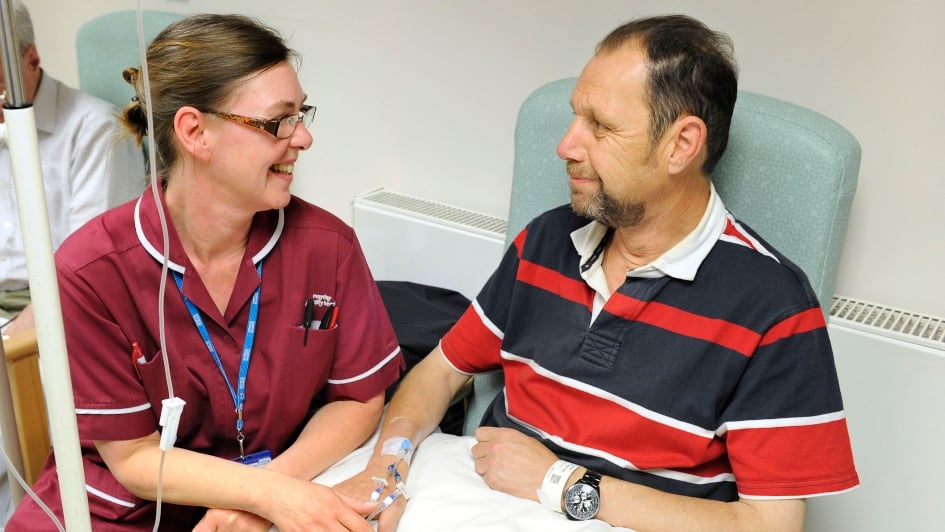Text
Links
Text can have links. They can be linking to pages on the ICR, like how to contact the ICR-CTSU team, or to external pages, like to the ClinicalTrials.gov database.
Links should describe what they link to - do not use 'click here'.
Links can be buttons too if you want to highlight them:
Find out about our other research
Style
Bold text is not in our style guide and is more difficult to read. Please avoid it as much as possible.
Do not change the colour of the text.
Headings - This is a 'Heading 2'
All pages should have one 'Heading 1' (at the very top). All the headings that follow should be 'Heading 2' followed by 'Heading 3'.
This is a 'Heading 3'
Headings are especially important for people who use screen readers, as it will make it easier for them to find the content they need rather than having to listen to the whole page.
Images

Image: A nurse sitting down with a patient in a hospital setting and holding his hand. Credit: The ICR
Images should have captions if they are under a copyright license - see formatting above (indented and italicised)
Landscape images should ideally have a ratio of 16:9 (945x432 pixels).
Images should have Alternative text.